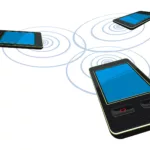We use our social accounts for so much more than personal connections these days – business contacts, friends, and far-away family members aren’t the only ones looking for you on Facebook and other popular sites! When it comes to communicating, social media accounts are just as important as email; additionally, they’re being used to send money, operate businesses, advertise, and so much more. With sensitive personal and financial information being sent back and forth each day, it’s not at all surprising that social accounts are extremely appealing to hackers looking for breaches in online security. They’re after your photos, your contacts, your passwords, and of course, your bank account. What to do to protect yourself? Here are three simple strategies to use.
Three Ways to Secure Your Social Accounts from Being Hacked
Be Careful About Oversharing.
Telling the world about your kids’ birthday parties, lots of tagging friends and relatives in posts, and personal details (such as your entire date of birth) give hackers clues about your identity and can lead them to your passwords. Think twice before posting personal information, and be careful about clues that you provide when you share photos of important lifetime milestones.
Be cautious about who you open up to, as well. Hackers often approach social media users with fake profiles, phishing attacks, and messages that contain spyware. Cloud computing can leave you vulnerable too, unless you take protective measures against hacking.
Don’t forget to use quality antivirus.
This might seem like basic common sense, but you’d be surprised at how many people leave their devices and social accounts completely unprotected. A highly functional anti hacking tool that scans your computer files and automatically prevents infiltrated sites from attacking your computer is absolutely essential. Even legitimate sites can be infected, and hackers use these to get access to your most sensitive information. Log Dog is a great example of a mobile Intrusion Detection System (IDS), providing online security for all of your accounts. It notifies you as soon as a threat is detected, and protects you from hackers and spyware. It’s one of the best free antivirus apps available, and is very easy to install and use.
Keep your computer current, and use strong, secure passwords.
Don’t be lazy about updating your devices when you’re prompted to do so. Why? The only ones smart enough to be effective hackers are coders who work hard to stay abreast of current security updates. Experts are continually working to combat them by rolling out system updates that ensure your devices are resistant to the latest threats. Yes, it can be annoying to stop work or a Netflix binge to deal with an update, but the minor irritation is well worth the added layer of security you get when you pause as recommended.
Additionally, don’t forget to use strong, secure passwords. Use creativity when creating them, and never, ever use the same password twice, no matter how tricky you think you’re being. A great password has at least 8 characters including upper and lower case letters, numbers, and symbols. If you are afraid that you’ll lose your passwords, use a secure password manager like PasswordBox or LastPass.
With spyware all over the internet, the risk of a stolen identity is real. Using solid antivirus apps and keeping abreast of the latest online security updates keeps you safer.








